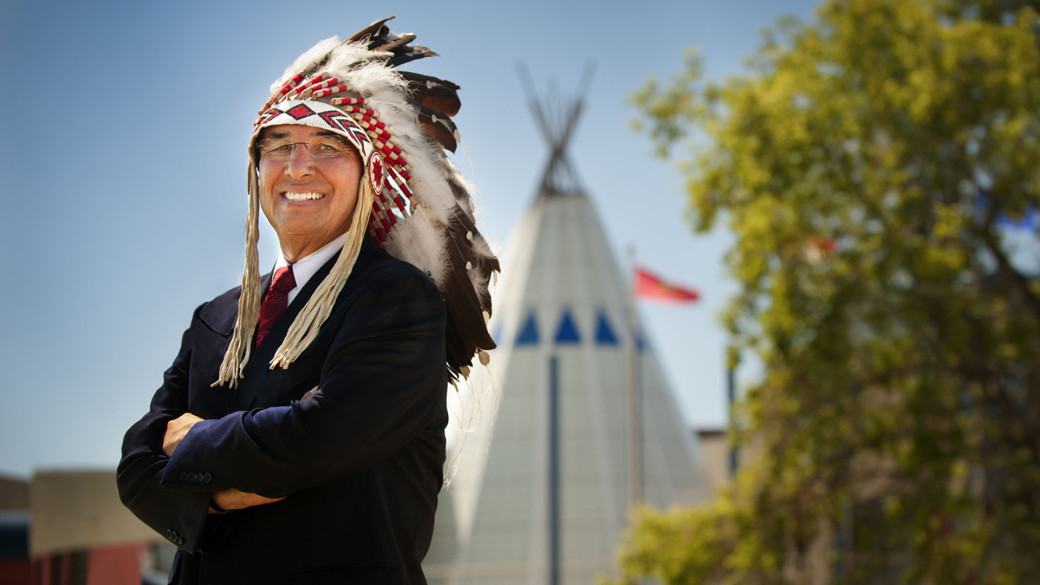Government mail service may be affected by the Canada Post labour disruption. Learn about how critical government mail will be handled.

"Honor the blessing that you have physically and then combine it with the mental and the physical and the cultural, so that you have a wholesome foundation for life."
Willie Littlechild has exemplified tremendous leadership throughout his career as an accomplished lawyer, respected politician and exceptional athlete. He has worked tirelessly to promote human rights, in particular those of Indigenous peoples.
Wilton Littlechild was born on April 1, 1944 on the Ermineskin reserve, Maskwacîs (formerly known as Hobbema). He comes from a large family with seven sisters and four brothers. He is honoured to have been raised by his grandparents, Chief Dan Minde and Mary Jane Minde and his philosophy for life can be accredited to them. His grandfather taught him from a cultural and traditional perspective, while his grandmother instructed him to pursue a formal education.
Willie was brought to residential school at the age of six and went to another residential school to complete high school, living 14 years of his life in these institutions. He witnessed many sad and tragic abuses, suffering through similar situations himself; however, Willie chooses to focus on his positive experiences. He believes he was saved by sports. With his grandparents’ teachings at the forefront of his mind, he quickly realized that a combination of sports and education was his path to success. He learned early on that if he practiced hard, he could become a good athlete. He applied this philosophy to his studies to become a good student, and later to his work to become a good businessperson.
Sports brought Willie his escape from residential school, paved his way to the University of Alberta, and provided the backdrop for the beginning of his relationship with his wife, Helen, whom he met in 1967. Their first date was at a football game with Willie on the field and Helen in the stands. Willie describes that date as a pivotal moment in his life, as she is such a big part of everything that Willie has accomplished in his life so far, including raising their family of three. Willie graduated with a Bachelor of Physical Education degree in 1967 having played on the Golden Bears hockey and swimming teams and managing the football and basketball teams. Later, in 1975, Willie returned to complete his Master’s degree, also in Physical Education.
In a roundabout way, sport also led Willie to law. Sidelined by a broken leg from a ski accident, Willie decided to coach junior hockey so that he could stay connected with the sport, give back to the community and motivate younger players. He started the first all-Indian junior hockey team in Alberta, encouraging the players to pursue their education by making it a requirement to play on the team. National Hockey League managers and officials offered him a spot at the professional hockey academy. He attended and discovered that almost all the other participants were lawyers, and decided that if he wanted to stay connected with the sport he would have to become a law student.
Willie found out that there were only five law students and only three lawyers of Aboriginal descent in Canada at that time. Realizing the need and the opportunity for a career in global Indigenous law, Willie decided that his desire to stay in sports would have to be put on hold. In 1976, he became the first Alberta Treaty First Nation person to receive a law degree from the University of Alberta. The Cree Nations honoured Willie by bestowing him with the highest honour an indigenous person can receive in his culture - the headdress as an honourary chief. He was also given a Cree name - his grandfather’s name, Mahihgan Pimoteyw - which means Walking Wolf.
In 1977, Willie set up his law practice on the Ermineskin Reserve, where he kept a busy schedule and began an extensive and accomplished career. His draw to the Maskwacîs community is directly related to his grandfather’s teachings. The community spirit was impressed upon Willie, along with the expectation that he understand his responsibility to make the community better and then hand a stronger future to upcoming generations. Over the course of his career, Willie has travelled extensively. Opportunities for success elsewhere have been offered frequently, but Maskwacîs remains his home.
Willie is known as a pioneer for the global Indigenous rights movement. He has worked with the United Nations for more than 30 years, advocating the rights of Aboriginal Peoples all over the world. Due to his background in international law, the Elders asked Willie as a young lawyer to address the UN and inform them that Treaties, the partnership between the Indigenous nations and the Crown, were being violated. Willie travelled to London, England to successfully delay the patriation of Canada’s Constitution until the Treaties were included in the Constitution.
Willie believes the United Nations is an important mechanism to promote peace and respect and has worked diligently on economic, social, cultural, civil, political and spiritual rights at the UN. His international work includes the UN Human Rights Council, world conferences and seminars, the UN Permanent Forum on Indigenous Issues, as well as being a representative of the International Organization of Indigenous Resource Development. He is a founding member of the Indigenous Initiative for Peace, the chairperson for the Denver Text of the OAS Declaration on the Rights of Indigenous Peoples and a member and VP for the Indigenous Parliament of the Americas. He is currently a member of Expert Mechanism on the Right of Indigenous Peoples (EMRIP) and has served two years as Chairperson.
In Canada, Willie was the first Treaty Indian Member of Parliament. He served a five-year term from 1988 to 1993, representing the riding of Wetaskiwin, Alberta, and was a parliamentary delegate to the UN. His name was already widely known due to his sports career when he ran for parliament, but he worked hard knocking on doors and using humour in debates, to win the riding with a majority. His travel schedule was tough on his young family but making decisions for Canada was a “tremendous honour” and he was thrilled “to be given the opportunity to build on the great strengths of our land.”
Willie is currently a commissioner for the Truth and Reconciliation Commission of Canada, sits on numerous boards and continues to promote education and physical and mental health to all youth, especially in his community. He contributed to the Maskwacîs Cultural College as a sessional instructor. The college is an important initiative to promote post-secondary education, bringing university to the reserve, as some find it difficult to uproot themselves to attend off-reserve institutions.
His commitment to excellence in everything he does is reflected in the vast number of honours Willie has received during his career. He has been awarded Queen’s Counsel and Indigenous Peoples’ Counsel, the highest honours of the legal profession. He was honoured as Lawyer of the Year (Aboriginal Law) and received the Diamond Jubilee Medal in 2012. He received the Distinguished Award from the Association of Former Parliamentarians in 2006 and an Honourary Doctor of Laws degree from University of Alberta in 2007. He was named as one of the 2000 Outstanding Intellectuals of the 21st Century in 2004, and was inducted as a Member of the Order of Canada in 1999.
The athlete in him never rests. In 2010, Willie was named the first Indigenous Torch Bearer and an Ambassador for the Olympic Winter Games in Vancouver. He participated in four Canada Senior Games, most recently winning one gold and three silver medals in swimming, in the games held in Sherwood Park, Alberta. He has won more than 70 provincial, regional, national and international championships and has been inducted into seven Sports Halls of Fame. Sport has played such an important role in Willie’s life that he continues to actively promote a physical and healthier lifestyle for young people, exemplified in his work as a founder of the Indian Sports Olympics (INSPOL), North American Indigenous Games (NAIG) and the first World Indigenous Nations Games (WIN Games) scheduled for Brazil in 2015.
His motto in life from a residential school coach is, “Winners don’t quit, quitters don’t win.” He believes the message in this sports motto is more about winning in life and ensuring there is balance. “Having a spiritual base along with the cultural, physical, and mental elements are very important.” Willie says. He encourages all youth to stay positive and live life with no limit.
